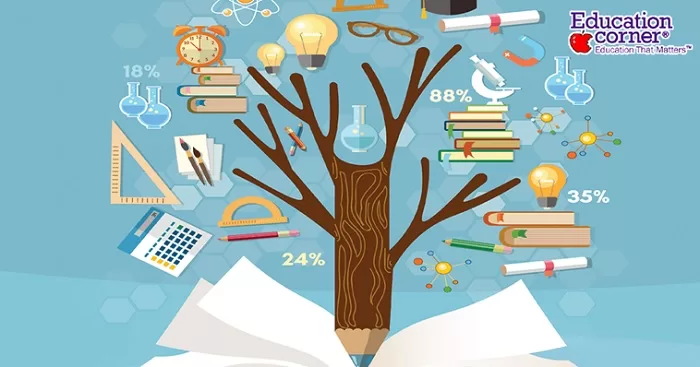Education
9 Tips For Good Children Education

The loads should not be too intense: overwork can harm cognitive ability. It was experimentally determined that the golden mean is half — hour aerobics classes three times a week.
During one experiment, children ran for half an hour 2-3 times a week. After just three months, their cognitive abilities improved significantly.
Repetition
Students forget 90 percent of what they learn in class within 30 days. Moreover, most of the information disappears from my head in the first hours after the lesson. Teachers can make current essays after each module to sum up it. Children could use essay checker to be more confedent. You can extend the storage period of information by systematically reproducing it at certain intervals. The number of repetitions and the interval between them are critical for the transition from short-term memory to long-term memory. Ideally, the completed material should be repeated two more times during the day (it is better to do this in the first hours after the lesson). Then you need to return to the information in three or four days. At the time of learning, memory is unstable — repetitions make it more reliable.
Healthy sleep
Do homework or (especially!) sitting on social networks late at night is a very bad idea. Our brain needs healthy sleep to learn successfully. Lack of sleep worsens mental activity by all possible indicators: it has a bad effect on attention, working memory, mathematical abilities, logical thinking and motor skills. The most interesting thing is that the negative effect of regular lack of sleep accumulates. This fact has been studied in detail in scientific experiments. During one of them, the time of night rest was limited to six or less hours. After five days, the cognitive abilities of the subjects were the same as after two days without sleep, that is, they decreased by 60 percent!
Small groups
The existing education system does not take into account that students of the same age have different intellectual abilities. After all, the neural connections of each brain are unique! Students master certain knowledge at different times and to different degrees. When there are a lot of children, it is difficult for the teacher to keep track of everyone, so there must be limits to the number of students — the fewer, the better. The fewer students there are, the more effective the training is. Small classes ensure successful work simply because the teacher can observe each child. Studying with a small group, the teacher sees better when students make mistakes, whether they are working at full strength and how well the material was understood. All other things being equal, smaller classes create a more favorable atmosphere for studying.
First the key idea, then the details
Memory tends to preserve the most important things that we encounter. The details can be restored if you remember the essence. The brain perceives generalized concepts better, rather than particulars. Of course, detailed knowledge is very important for successful education at school. It is interesting that you can remember the details based on the meaning. If you want the child to learn the material well, do not start with the details. Focus on the key idea and build details around the basic concepts.
Maintaining interest
Attention is one of the secrets of high academic performance. It is inextricably linked with the interest or importance of information. We notice everything unusual, unpredictable, different, causing emotions. Such signals are processed by the brain and remembered much better than neutral ones. The more attention the brain pays to the received signals, the better the information is encoded and, consequently, stored.
Keep the attention of students
In an average lesson, students lose interest after about 10 minutes. The teacher should take this feature into account. After 600 seconds, it is necessary to attract the attention of children with an emotionally significant stimulus related to the topic — a vivid image, news, an illustrative example, a story on the topic of the day, a story, an anecdote or a joke.
Small semantic blocks
Most teachers dump too much information on their students and give them too little time to digest it. Specialists who are well versed in their topic simply forget what it’s like to be a beginner. To improve the learning process, the teacher should present information in small portions, giving children a rest between the semantic blocks of the lesson. You can spend 10 minutes on one idea. During this time, it is necessary to formulate a specific thesis, and then clearly, accurately and in detail explain the relationship between the details and the main concept. Then it is advisable to use the trap to maintain attention (see the previous paragraph) and smoothly move on to the next thought.
Single-tasking
Observe how the child does his homework. Does he listen to music and actively correspond with friends? Several windows and programs that are not related to studying are open on the computer at once? Of course, in such an environment it is difficult to concentrate on the task. The child should do his homework without being distracted by extraneous things Scientists have proved that multitasking is a myth. The brain is not able to pay attention to several different things at the same time. It is impossible to stay focused and process information efficiently, jumping from one case to another. Try to make sure that the student is surrounded by as few distractions as possible — and his results will definitely improve.
Reducing stress levels
The release of stress hormones (adrenaline and cortisone) is the body’s defense system. It is designed to enable an instant reaction to a serious, but short-term threat to life. However, in the modern world, stress is often measured not by seconds of meeting with a real danger, but by hours, days and months of psychoemotional loads. In this case, hormones poison our body. If possible, protect the child from the effects of stressful factors
It is necessary to create such conditions that the student can actively test the environment, follow the call of his brain, experiment, observe, make his own discoveries, acquire knowledge during the game, apply theory in practice and enjoy this process.




















































